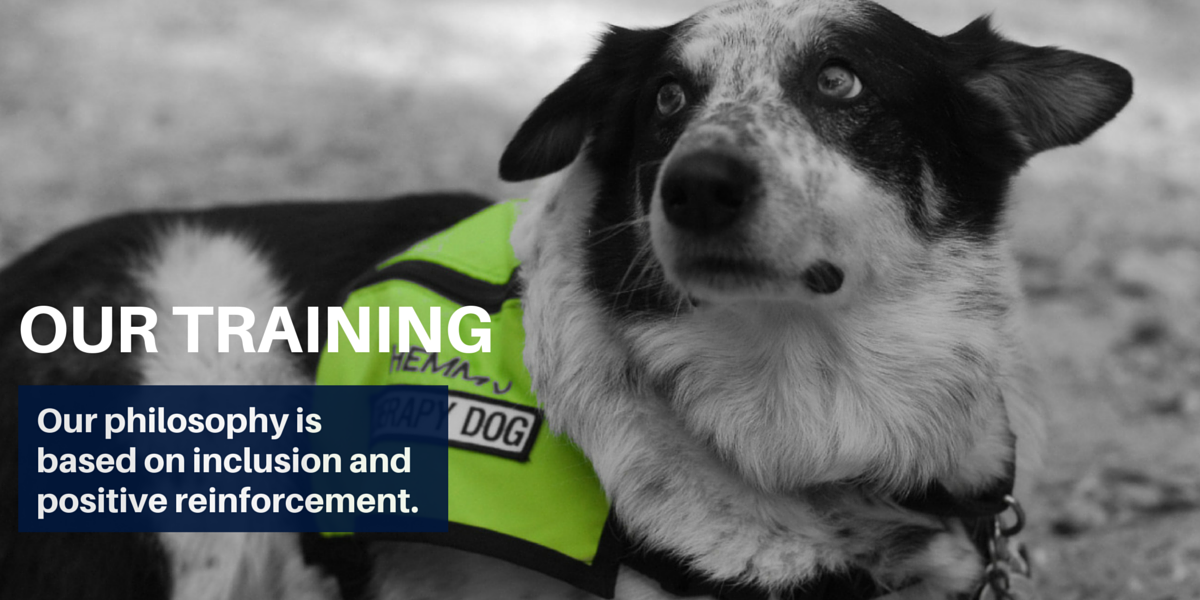
Our Training Philosophy
The guiding philosophy of Divine Canines is to do no harm, the most important element of humane dog training.
We start our philosophy by being a training-based group, not a selection-based group. We guide dog-and-handler teams with training and support, rather than testing and selecting dogs that meet rigid criteria. We give opportunities to people and dogs that might be misjudged at face value.
Doing no harm means that during training, we never cause physical or emotional harm to the dog. We do not believe in training methods that lead to frustration and intimidation.
o Emotional harm includes purposely intimidating the dog—for example, yelling or screaming at the dog. It could also include intimidating body language.
o Physical harm includes anything that intentionally creates pain to teach the dog to avoid something—for example, pinch collars, choke collars, e-collars, shock collars, Good Dog collars, grabbing of ears or the scruff of the neck, and slapping the dog.
We believe in developing a natural but influenceable dog. We build a relationship of cooperative communication between the handler and dog, rather than using intimidation that results in emotional artifacts that chronically and negatively affect the human-dog relationship.
Dogs are not strict and rigid creatures; therefore, they respond negatively to intimidation.
We believe in reducing conflict in a dog’s life: praising as opposed to yelling; petting instead of hitting. A dog living without conflict is relaxed and happy with its owner.
Divine Canines trains in complex environments with complex populations. We interpret and address behavior issues as best we can. We consistently ask:
- How trustworthy is the temperament of the dog?
- Does the dog-handler team need work in a specific environment or situation?
- How can we help the dog-handler team succeed?
We expose dogs to the sights, smells and sounds where they will be working. We test the dog’s behavior in situations similar to what may be experienced on a site visit. For example, exposure to medical equipment such as wheelchairs, crutches, canes and walkers in order to develop responsiveness in the dog-handler team. The result is a dog that is conditioned to generalize skill sets, meaning the dog will continue working no matter the environment or distractions.
Our goal is a dog that generalizes to maintain working form, regardless of distractions.
Put our training into action. Become a Volunteer.
